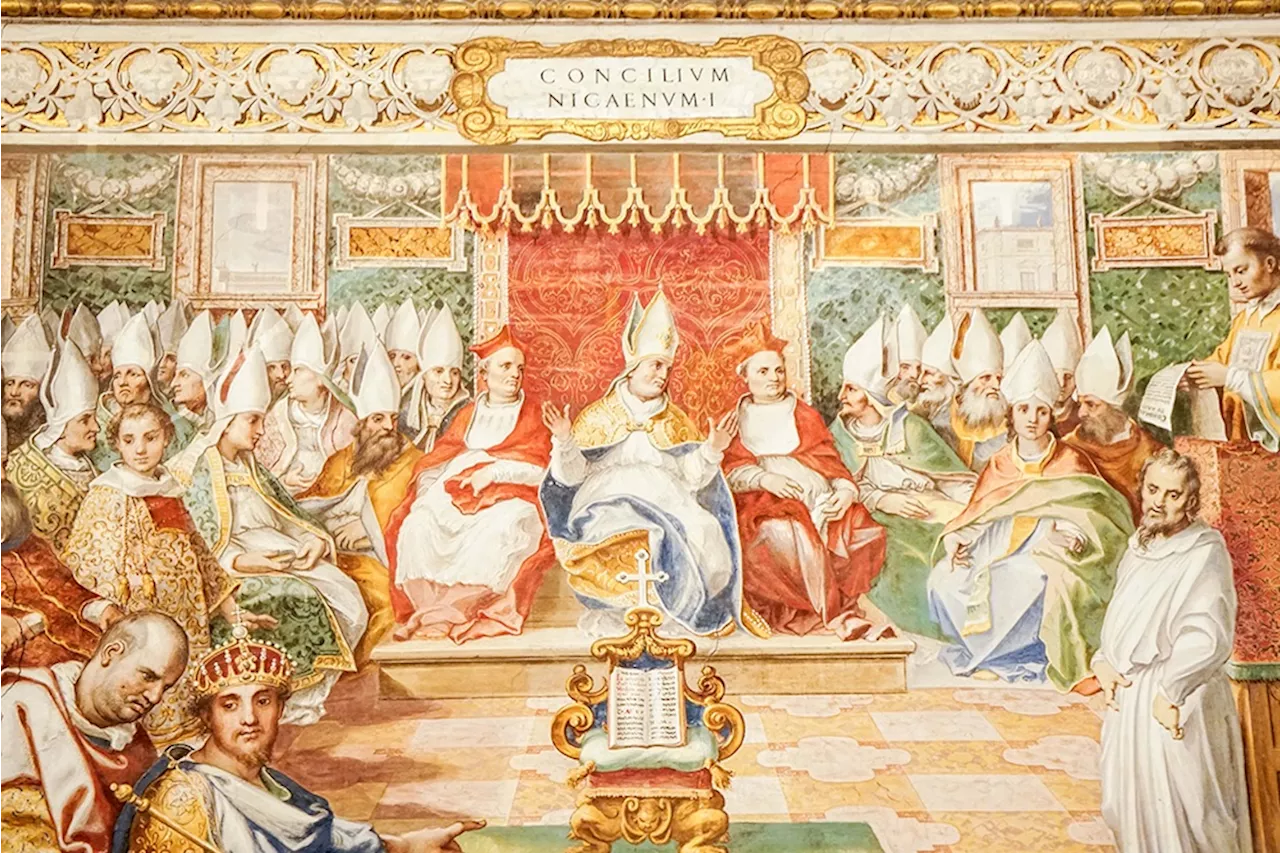This article explores the historical, theological, and artistic impact of the Nicene Creed, marking its 1,700th anniversary. It examines the Creed's enduring relevance for Christians today and its influence on shaping Christian belief and practice.
This year marks the 1,700th anniversary of the Council of Nicaea, a pivotal event in Christian history that produced one of the faith's most enduring and influential documents: the Nicene Creed . Established in 325 AD, this declaration of faith continues to be recited by millions of Christians worldwide every Sunday. Its longevity speaks volumes about the strength of its theological foundations, which have shaped Christian belief for nearly two millennia.
The Creed's survival through the ages mirrors how history often preserves the best ideas and works, while less significant ones fade into obscurity. For example, in 18th-century Germany, hundreds of organists and choirmasters composed music for Sunday liturgies, yet today, only Johann Sebastian Bach's compositions remain a central part of the liturgical tradition. Similarly, the Nicene Creed has endured because of its profound theological significance. Despite being centuries old, the Creed's words continue to shape the lives of millions. Every Sunday, worshippers across the globe affirm the core beliefs laid out by the Council of Nicaea, including the divinity of Christ and the doctrine of the Holy Trinity. These theological truths continue to define Christian orthodoxy and influence the lives of believers in tangible ways. The Creed's continued relevance is underscored by its historical significance. One common phrase, “not an iota’s worth of difference,” traces its origins back to the Christological debates at Nicaea, where the bishops discussed the distinction between the Greek terms “homoousios” (of the same substance) and “homoiousios” (of similar substance). The victory of the orthodox position, which affirmed that Jesus Christ is “true God from true God,” secured the Creed’s place in Christian doctrine. However, what sets the Nicene Creed apart from contemporary religious trends is its focus on theology rather than ethics. Unlike modern interpretations of Christianity, which often emphasize moral teachings, the Creed bypasses much of Jesus’ earthly life, including His parables and the Sermon on the Mount. Instead, it emphasizes Christ’s divine nature, His incarnation, and His crucifixion. This focus serves as a reminder that Christianity is not merely a system of ethics but a faith rooted in the mystery of Christ’s divinity. This theological focus has inspired countless works of art, particularly sacred music. Composers such as Mozart, Schubert, and Bach have created beautiful compositions based on the words of the Nicene Creed, such as Bach’s Credo in Unum Deum from the B minor Mass and Mozart’s Et Incarnatus est from the Mass in C minor. These musical works remain beloved today for their ability to capture the beauty and depth of Christian belief.The Creed’s influence goes beyond art and worship. It also serves as a foundation for Christian ethics. Although the Creed does not explicitly address ethical issues, statements like “through him all things were made” remind believers of their responsibility to care for the world and each other. The Creed calls Christians to recognize the earth and all life as a gift from God, shaping a Catholic humanism that defends human life from the womb to the tomb and advocates for the protection of the environment. The Creed’s continued relevance can be attributed not only to its theological depth but also to the faith of the believers who recite it. Christians still declare, “We believe in one God, the Father Almighty,” and affirm Christ’s divinity, his resurrection, and the Holy Trinity. These beliefs are central to the Christian identity, even in a time when the Church faces divisions and challenges. As the Catholic Church continues to evolve, particularly in the post-Vatican II era, it is important for preachers and theologians to revisit and explain the dogmatic beliefs that undergird the faith. While many modern sermons focus on the day’s biblical readings, the Nicene Creed remains a vital expression of the Christian faith and an essential part of liturgical life. The Creed encapsulates the core of Catholic belief and remains a defining element of Christian doctrine, despite the many changes the Church has undergone in the last 1,700 years. It serves as a testament to the lasting power of foundational theological truths and the enduring significance of the Nicene Council’s work in shaping the faith of Christians worldwide
Nicene Creed Council Of Nicaea Christian Doctrine Theology History Of Christianity
Malaysia Latest News, Malaysia Headlines
Similar News:You can also read news stories similar to this one that we have collected from other news sources.
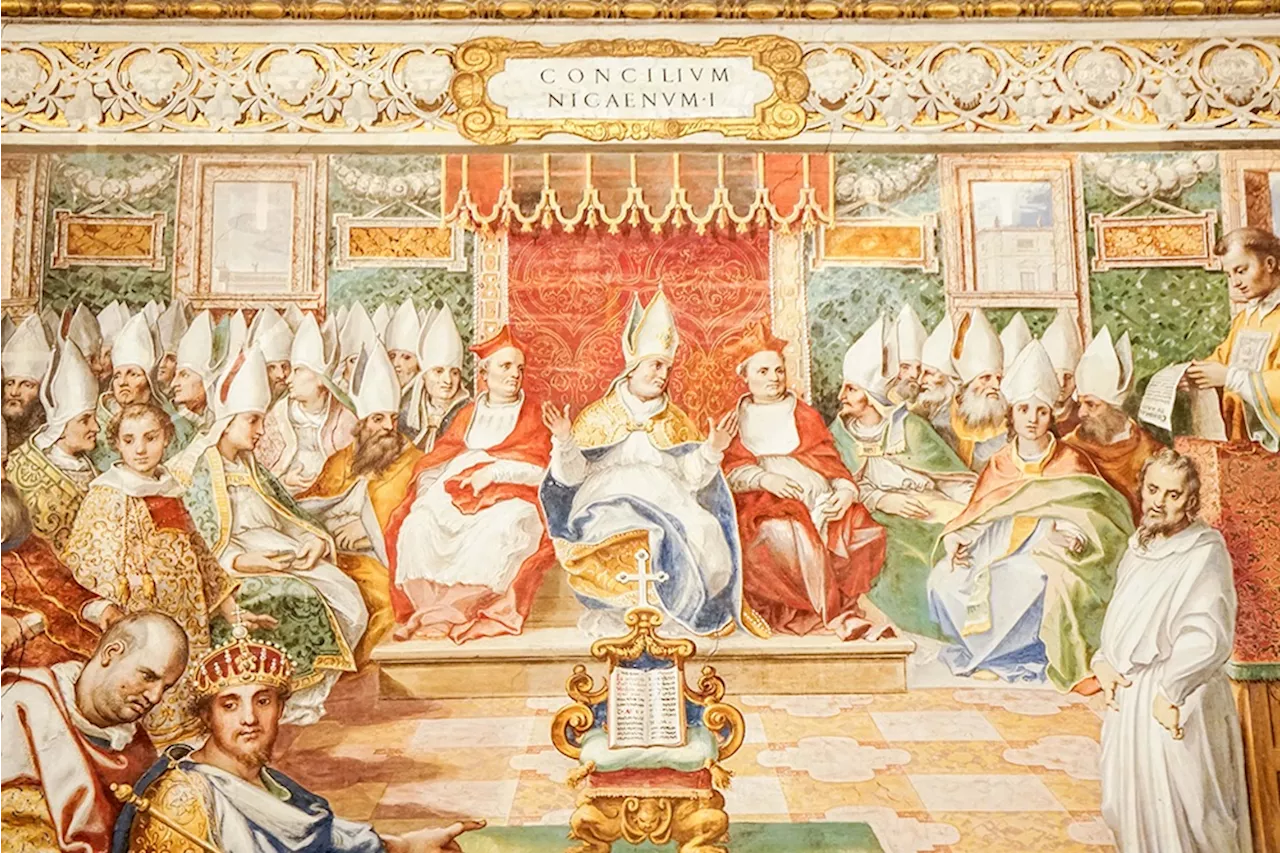 The Enduring Legacy of the Nicene Creed: 1,700 Years of Shaping Christian FaithThis article commemorates the 1,700th anniversary of the Council of Nicaea and explores the enduring impact of the Nicene Creed on Christian belief and practice. It delves into the historical context of the Creed's creation, its theological significance, its influence on art and ethics, and its continued relevance in the 21st century.
The Enduring Legacy of the Nicene Creed: 1,700 Years of Shaping Christian FaithThis article commemorates the 1,700th anniversary of the Council of Nicaea and explores the enduring impact of the Nicene Creed on Christian belief and practice. It delves into the historical context of the Creed's creation, its theological significance, its influence on art and ethics, and its continued relevance in the 21st century.
Read more »
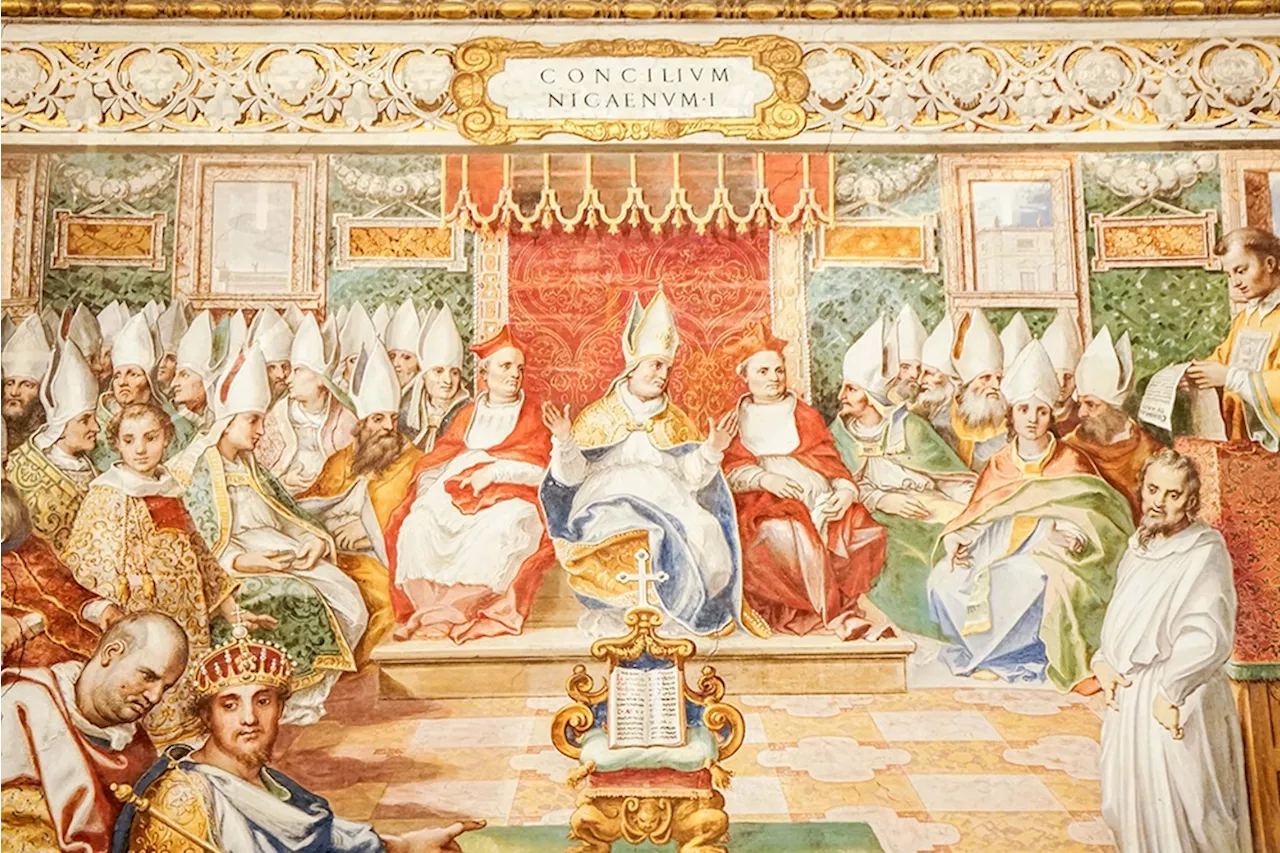 The Enduring Legacy of the Nicene Creed: 1,700 Years of Faith and InfluenceThis article explores the significance of the Nicene Creed, commemorating the 1,700th anniversary of the Council of Nicaea. It delves into the Creed's historical context, theological depth, enduring relevance, and influence on Christian art and ethics.
The Enduring Legacy of the Nicene Creed: 1,700 Years of Faith and InfluenceThis article explores the significance of the Nicene Creed, commemorating the 1,700th anniversary of the Council of Nicaea. It delves into the Creed's historical context, theological depth, enduring relevance, and influence on Christian art and ethics.
Read more »
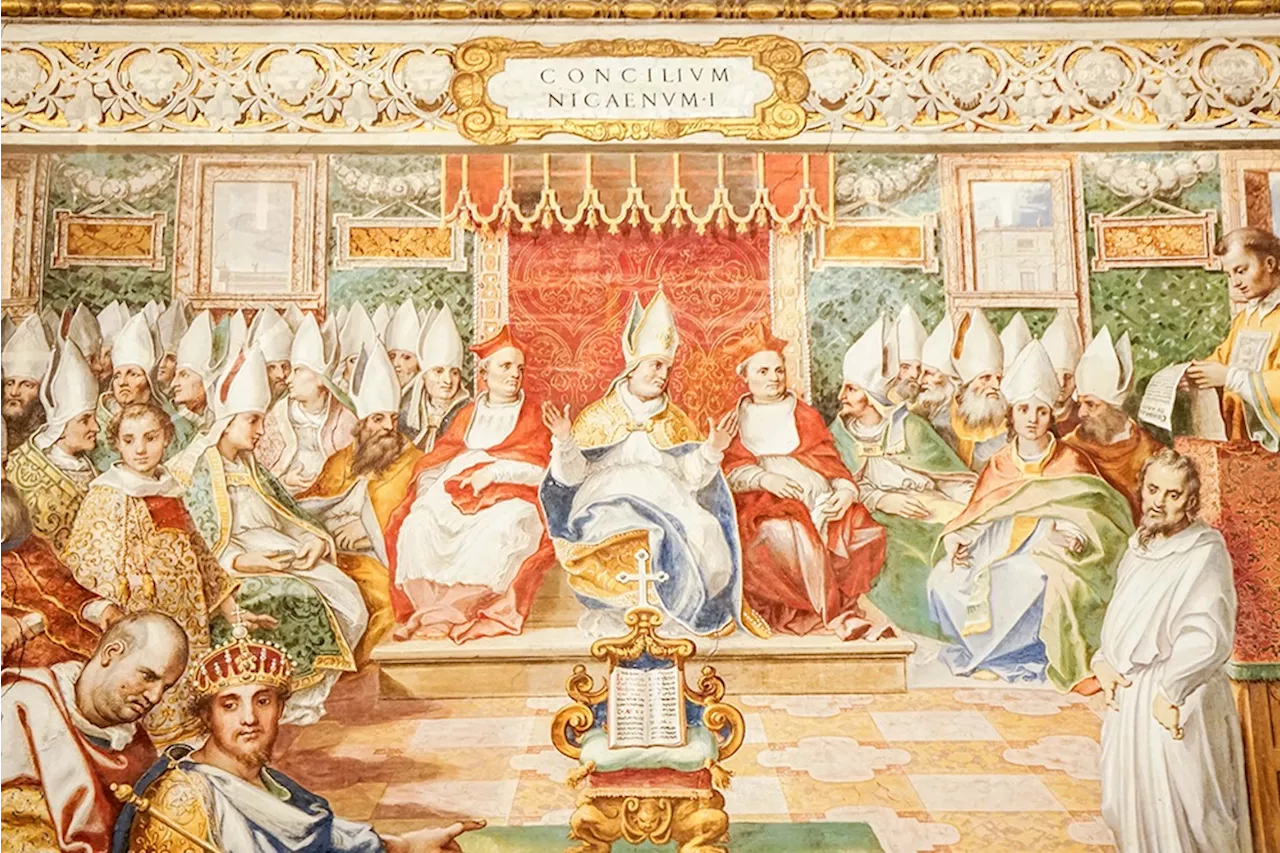 The Enduring Legacy of the Nicene CreedThis article explores the historical significance and enduring relevance of the Nicene Creed, a defining document of Christian faith established at the Council of Nicaea in 325 AD. It examines the Creed's theological foundation, its influence on art and worship, and its continued impact on Christian beliefs and ethics in the 21st century.
The Enduring Legacy of the Nicene CreedThis article explores the historical significance and enduring relevance of the Nicene Creed, a defining document of Christian faith established at the Council of Nicaea in 325 AD. It examines the Creed's theological foundation, its influence on art and worship, and its continued impact on Christian beliefs and ethics in the 21st century.
Read more »
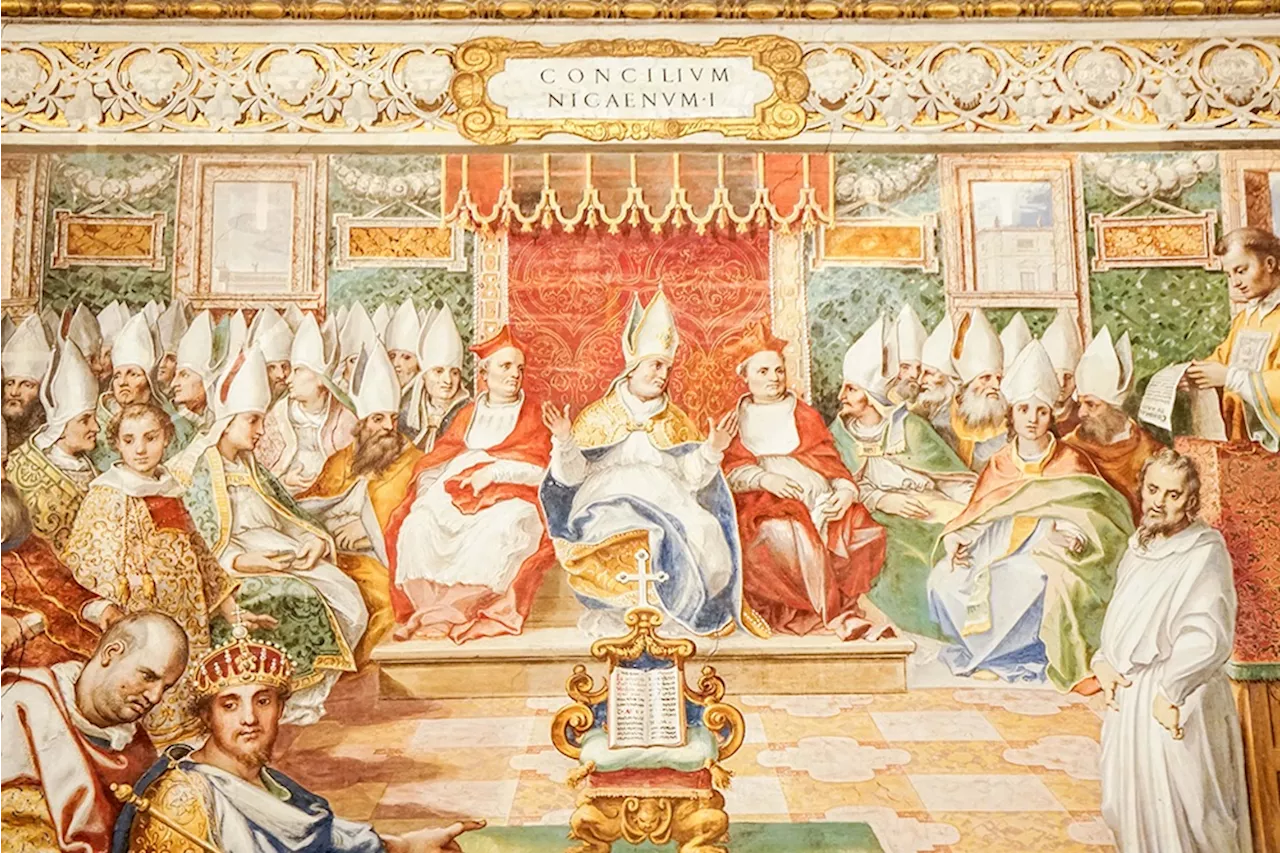 The Enduring Legacy of the Nicene Creed: 1,700 Years of Shaping Christian FaithThis news article explores the 1,700th anniversary of the Council of Nicaea and its pivotal role in shaping Christian doctrine through the Nicene Creed. It delves into the Creed's historical significance, theological depth, and enduring influence on Christian belief, worship, and ethics.
The Enduring Legacy of the Nicene Creed: 1,700 Years of Shaping Christian FaithThis news article explores the 1,700th anniversary of the Council of Nicaea and its pivotal role in shaping Christian doctrine through the Nicene Creed. It delves into the Creed's historical significance, theological depth, and enduring influence on Christian belief, worship, and ethics.
Read more »
 The Enduring Legacy of the Nicene Creed: 1,700 Years of Christian FaithThe 1,700th anniversary of the Council of Nicaea, the birthplace of the Nicene Creed, is a time to reflect on the enduring impact of this foundational Christian document.
The Enduring Legacy of the Nicene Creed: 1,700 Years of Christian FaithThe 1,700th anniversary of the Council of Nicaea, the birthplace of the Nicene Creed, is a time to reflect on the enduring impact of this foundational Christian document.
Read more »
 Ubisoft Delays 'Assassin's Creed Shadows' to March 2024Ubisoft has delayed the release of its highly anticipated 'Assassin's Creed Shadows' to March 2024, citing the need for further polish and bug fixes. The delay comes after an initial postponement to February 2024 and follows concerns raised by players about early gameplay footage. The move seeks to avoid a repeat of the troubled launch of 'Star Wars: Outlaws' and bolster Ubisoft's image after a series of financial woes.
Ubisoft Delays 'Assassin's Creed Shadows' to March 2024Ubisoft has delayed the release of its highly anticipated 'Assassin's Creed Shadows' to March 2024, citing the need for further polish and bug fixes. The delay comes after an initial postponement to February 2024 and follows concerns raised by players about early gameplay footage. The move seeks to avoid a repeat of the troubled launch of 'Star Wars: Outlaws' and bolster Ubisoft's image after a series of financial woes.
Read more »
